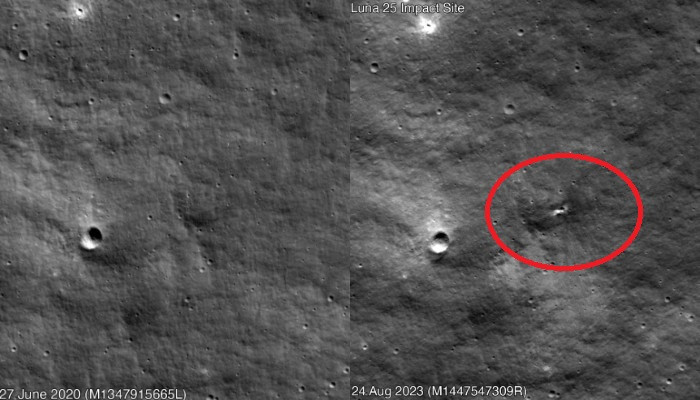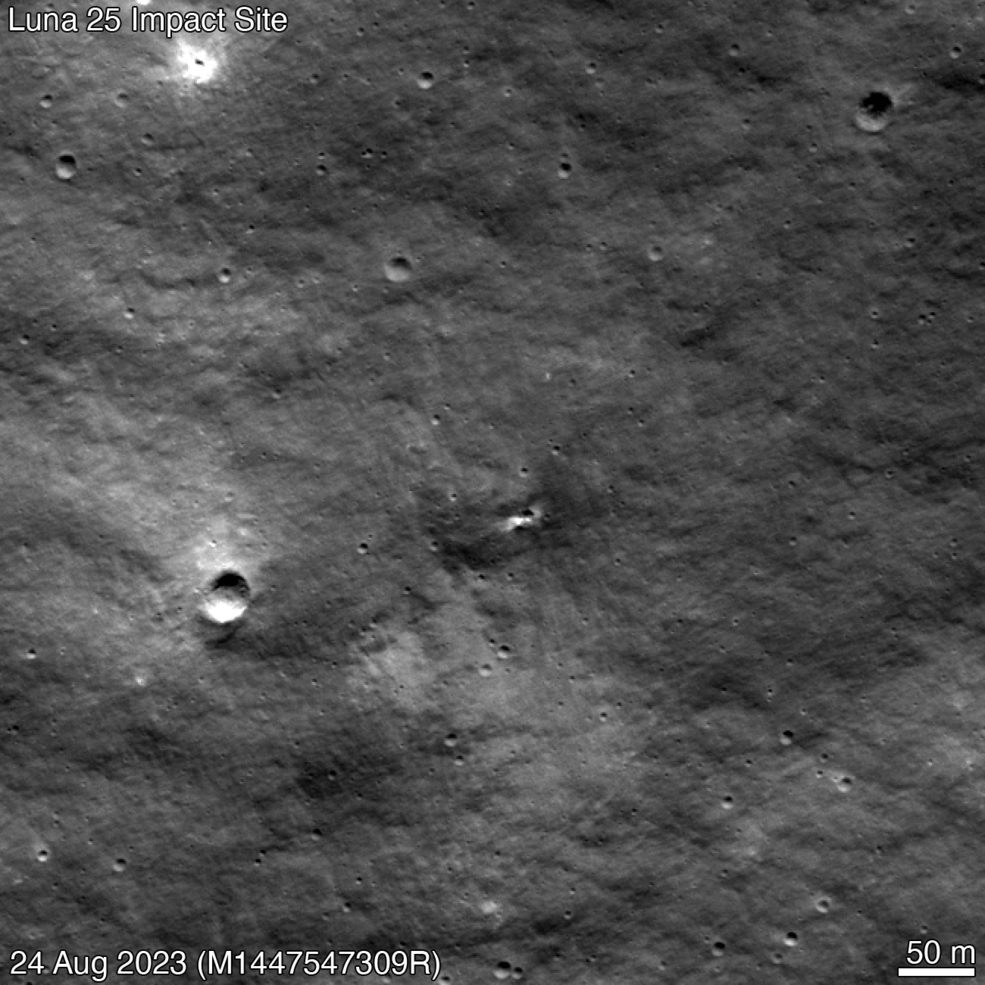NASA’s LRO Observes Crater Likely from Luna 25 Impact
 Roscosmos, Russia’s space agency, published an estimate of the impact point on Aug. 21. The LROC (short for LRO Camera) team and the LRO Mission Operations team were able to design and send commands to the LRO spacecraft on Aug. 22 to capture images of the site. The sequence began on Aug. 24 at 2:15 p.m. EDT (18:15 UTC) and was completed about four hours later, at 6:12 p.m. EDT (22:12 UTC). The LROC team compared images taken prior to the impact time and the sequence taken after and found a small new crater. LRO’s most recent "before" image of the area was captured in June 2022 (frame No. M1410024427R); thus, the crater formed sometime after that date. Since this new crater is close to the Luna 25 estimated impact point, the LRO team concludes it is likely to be from that mission, rather than a natural impactor. The new crater is about 10 meters in diameter and is located at 57.865 degrees south latitude and 61.360 degrees east longitude at an elevation of about minus 360 meters. The impact point was on the steep (greater than 20-degree grade) inner rim of Pontécoulant G crater, about 400 kilometers short of Luna 25’s intended landing point at 69.545 degrees south, 43.544 degrees east. LRO is managed by NASA's Goddard Space Flight Center in Greenbelt, Maryland, for the Science Mission Directorate at the agency’s Headquarters in Washington. Launched on June 18, 2009, LRO has collected a treasure trove of data with its seven powerful instruments, making an invaluable contribution to our knowledge about the Moon. Arizona State University manages and operates LROC.  |

Single-dose HIV vaccine candidate induces neutralizing antibodies
64703.02.2026, 19:19
Apple ‘runs on Anthropic,’ says Mark Gurman
69801.02.2026, 23:53
Meet the Kennewick Man: Face of 'most important' ancient American revealed after 8,500 years
72525.01.2026, 17:07
Can Humanoid Robots Build Aircraft? UBTECH Partners with Airbus
67019.01.2026, 23:41
Nasa's mega Moon rocket arrives at launch pad for Artemis II mission
69918.01.2026, 17:53
China's Mars rover discovers longer water existence on red planet
68211.01.2026, 15:31
